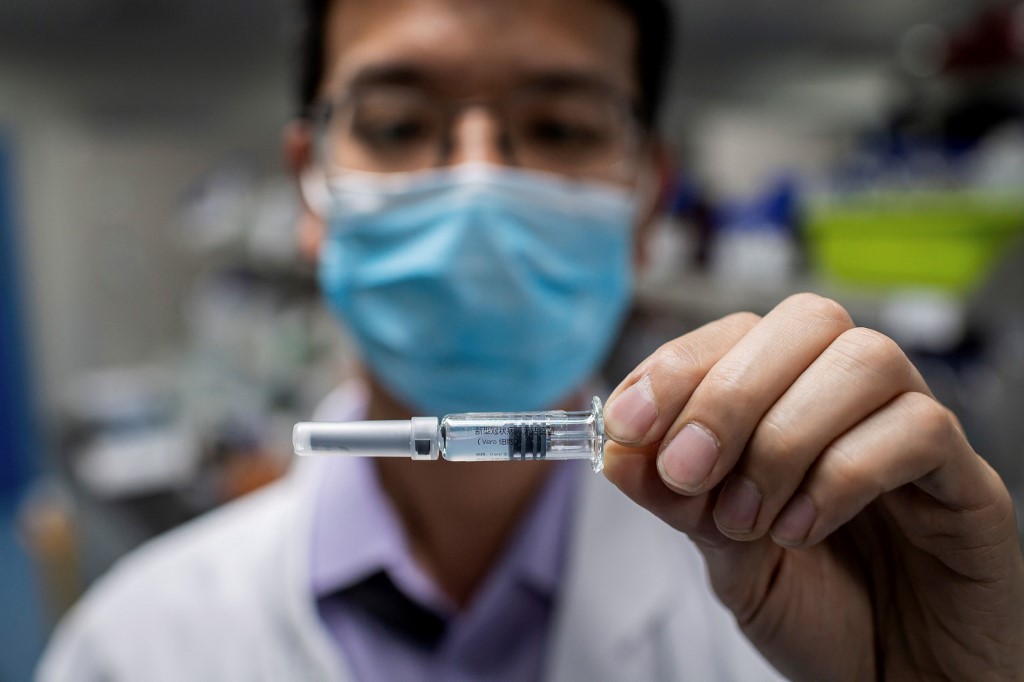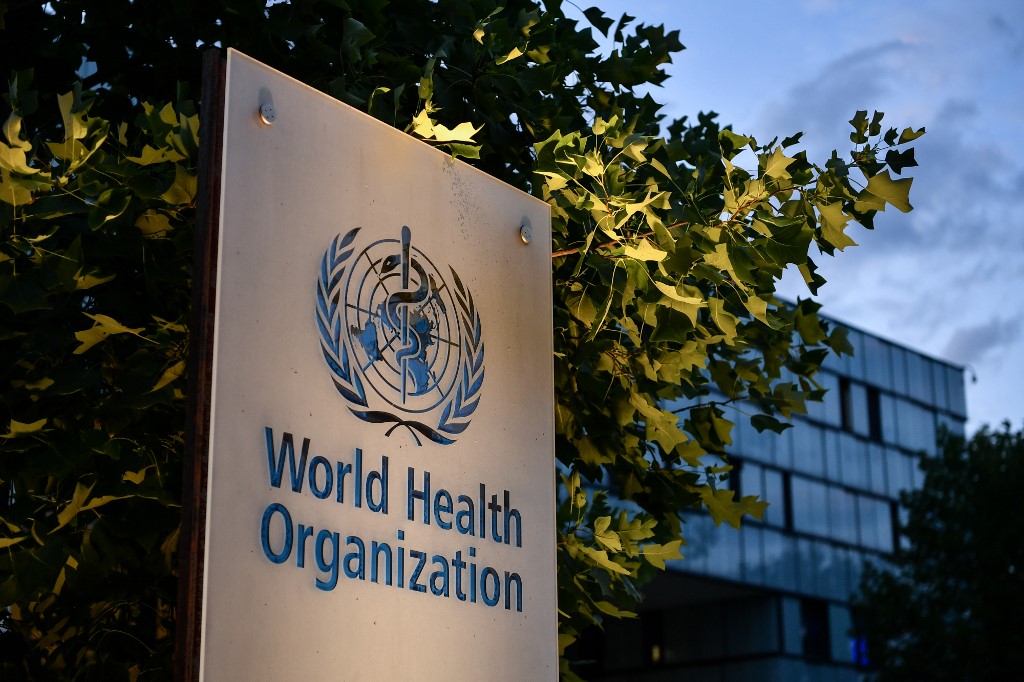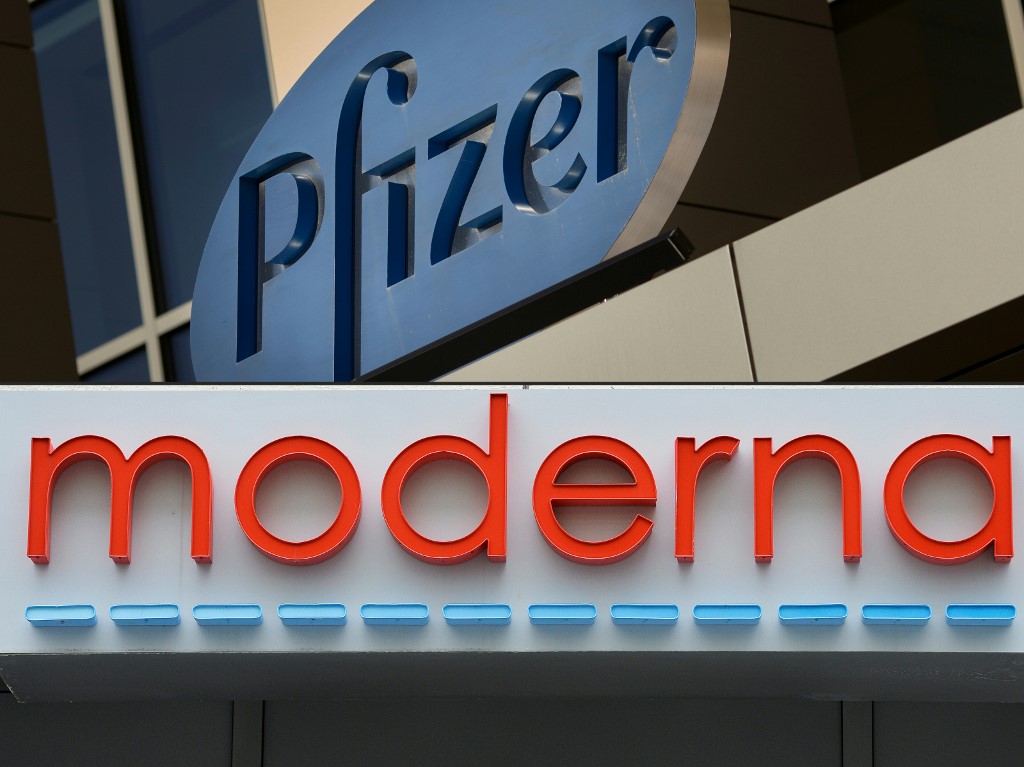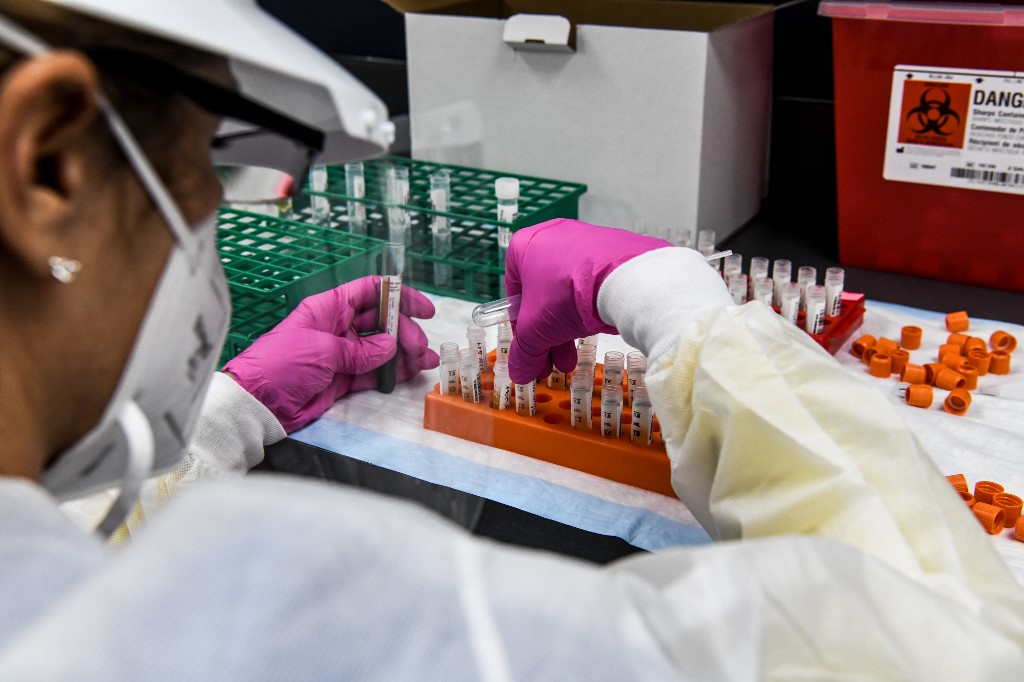
PARIS, France (AFP) — Dozens of companies, from biotech start-ups to Big Pharma, are racing to develop a safe and effective Covid-19 vaccine, both to meet urgent medical need and for the potential payday.
Here’s an update on the quest for a magic bullet against the coronavirus that has already killed more than a million people worldwide.
How many in the pipeline?

The World Health Organization (WHO) has identified 42 “candidate vaccines” at the stage of clinical trials, up from 11 in mid-June.
Ten of them are at the most advanced “phase 3” stage, in which a vaccine’s effectiveness is tested on a large scale, generally tens of thousands of people across several continents.
Earlier this month a US-German collaboration between Pfizer and BioNTech scored a major breakthrough by announcing the results of its phase 3 trial for its mRNA vaccine.
It said the vaccine had proven 90 percent effective in preventing Covid-19 symptoms and did not produce adverse side effects among thousands of volunteers.

Pfizer is currently seeking Emergency Use Authorization from the US Food and Drug Administration (FDA) and expects to roll out initial doses imminently, with a total of 1.3 billion doses to be administered by the end of next year.
On Monday US biotech firm Moderna said its vaccine was almost 95 percent effective.
Moderna plans to submit applications for emergency approval in the US and around the world within weeks, and says it expects to have approximately 20 million doses ready to ship in the US by the end of the year.
It says it’s on track to manufacture between 500 million to a billion doses globally in 2021.
In addition, several state-run Chinese labs and a European project led by the University of Oxford and AstraZeneca are thought to be among the more promising candidate vaccines.
Russia has already registered two Covid-19 vaccines, even before clinical trials were completed.
What kind of vaccines?
Some methods for making a vaccine are tried-and-true, while others remain experimental.
Inactivated “classic” vaccines use a virus germ that has been killed, while others use a weakened or “attenuated” strain that is virulent enough to provoke antibodies but not to cause disease.
So-called “sub-unit” vaccines contain a fragment of the pathogen they are derived from to produce an appropriate immune response.
“Viral vector” varieties use other forms of live virus to deliver DNA into human cells, triggering an immune response.
A measles virus modified with a coronavirus protein, for example, can be deployed against Covid-19.
Both Pfizer’s and Moderna’s vaccines are based on new technology that uses synthetic versions of molecules called messenger RNA to hack into human cells, and effectively turn them into vaccine-making factories.
Safety first

Trials of two candidate vaccines — made by Johnson & Johnson and Eli Lilly — were “paused” recently over safety concerns.
But that is not necessarily bad news, said Stephen Evans, a professor of pharmacoepidemiology at the London School of Hygiene and Tropical Medicine.
“The fact that trials are paused should indicate that there should be confidence that the whole process of monitoring the safety of trial participants is working well,” he said.
Recent cases in which recovered Covid patients were infected a second time with a new strain also raise the question of how long vaccines might last.
In October, the US FDA said it would need to see two months of follow up data after vaccination before giving emergency authorisation for any vaccine use.
“What is different for Covid-19 vaccines is that speed of development and potential approval is much faster due to the public health emergency,” noted the European Medicines Agency (EMA).
But even that pressing need cannot overcome the rules.
“Before approval, all vaccines in the European Union are evaluated against the same high standards as any other medicine,” the EMA said in a statement.
© Agence France-Presse








